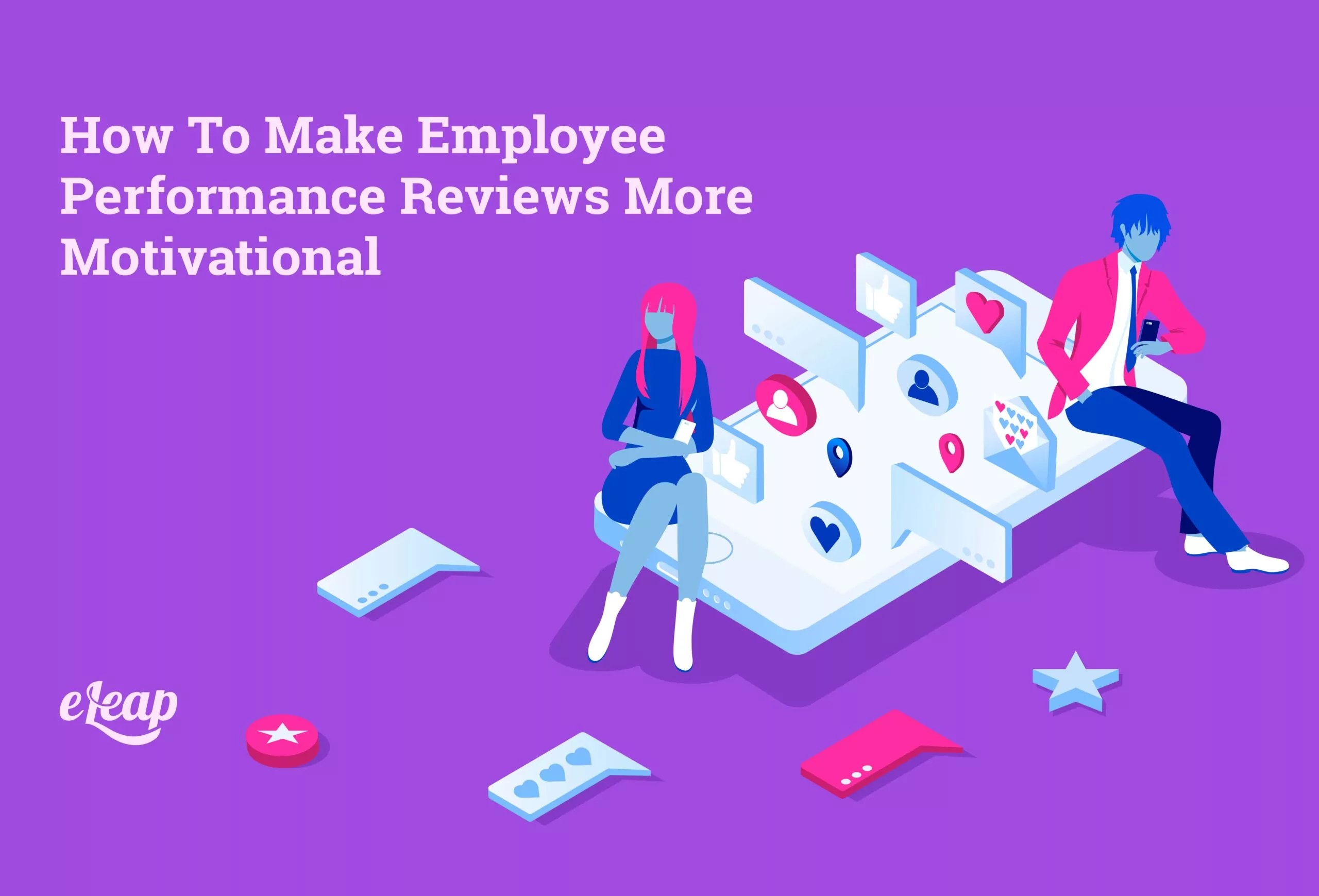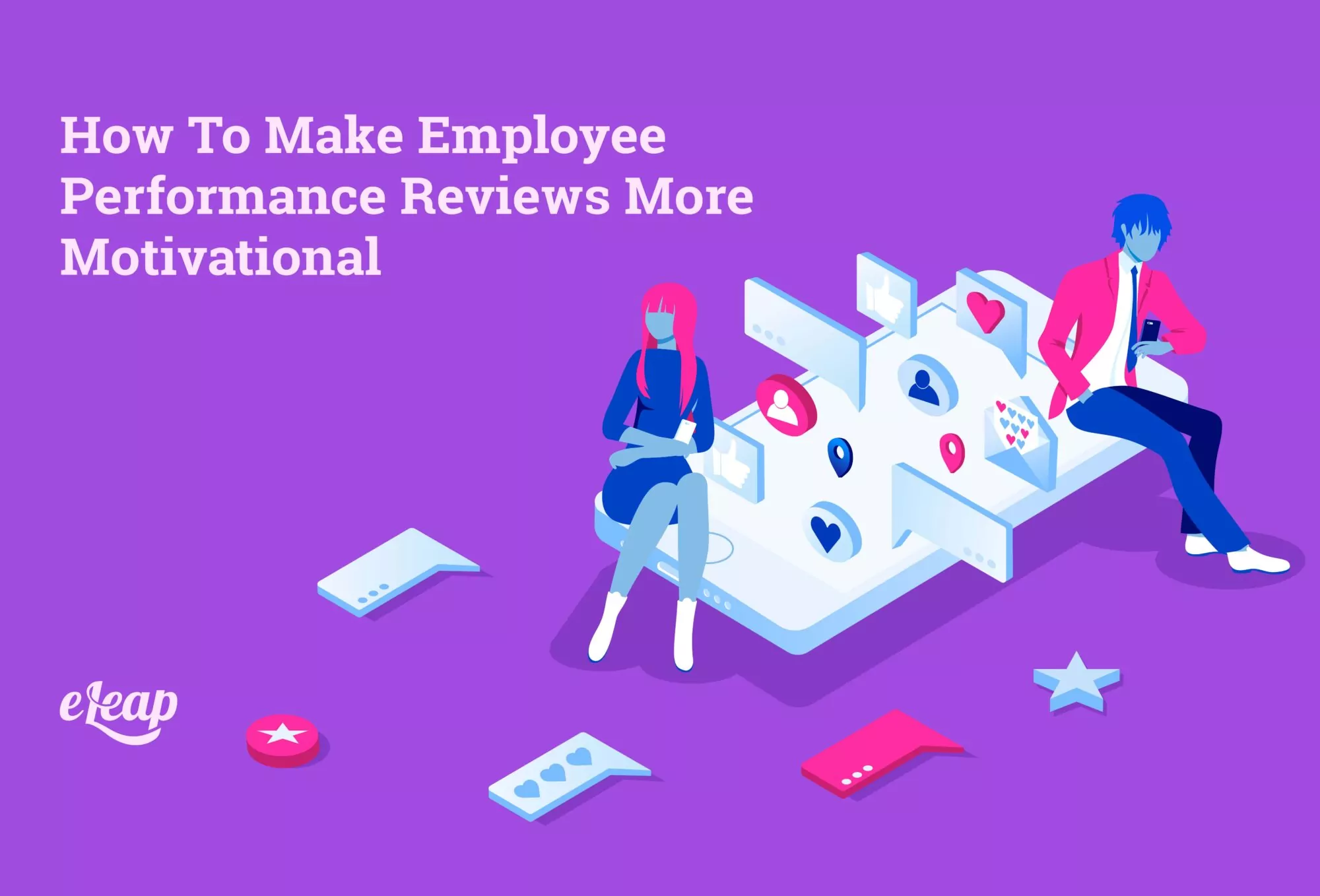How To Make Employee Performance Reviews More Motivational

Performance reviews should be a source of motivation for employees, but most of the time, they dread their reviews and leave feeling disheartened or defensive. Tackling performance reviews effectively requires some understanding and preparation. There’s a skillset behind developing and delivering the ideal performance review; one that motivates your employees to improve rather than leaves them feeling enervated.
Unfortunately, performance reviews don’t exactly have the best track record. They can be seen as beneficial for some self-motivated employees, who may use them as a way to reevaluate their goals and track their growth within the company. But unfortunately, most employees either view them as a waste of time or dread them entirely.
When done right, performance reviews can be motivational and inspiring, but they need to be addressed and outlined in the right way to make that possible. So, how do you ensure performance reviews are a driving force behind employee motivation and improved satisfaction rates, as well as overall performance?

Go into The Review with The Right Mindset
If you see performance reviews with trepidation or as nothing more than an HR formality, how do you think your employees will feel? Your mindset needs to be in the right place before you can expect the same of those who work for you. In order to tackle performance reviews the right way, take some time to consider why they exist and how they can work in your favor if handled correctly. A good performance review strategy and a successful outcome starts with your mindset.
Reframe the Competitive Mindset
Unfortunately, performance reviews can unintentionally and all too easily become grounds for competition. They’re often viewed as a way for an employee to defend their job and try to prove themselves, making the process feel more like an interview than a review. This type of competitive mindset does nothing favorable for the performance review process. It makes honest conversation decidedly difficult and ultimately adds no value to the overall outcome. In order for a performance review to be a success, it must be viewed more as an opportunity for effective coaching rather than a competition. In this type of environment, when approached correctly, employees can participate in a genuine discussion and state their opinions, leading to better engagement and the desired performance results. Try to facilitate dialogue aimed at collaboration towards a shared goal, and the steps to get there, which will lead to higher employee success rates.
Set a Clear Purpose
In order for performance reviews and their entailing discussions to be a success, they need to have a clear-cut purpose. Your employees should enter the review process with a thorough understanding of what will be discussed so that conversation can remain streamlined. Performance reviews are often viewed as the time to offload all concerns, discuss promotions, review employee development, and deliberate any other qualms the employee can think of. In short, they have developed into so much more than just a performance review, which can make them muddled and unclear in their execution. What’s more, performance reviews have become a frustration scapegoat; a place for employees to offload their concerns or dissatisfaction in what feels like an appropriate environment to do so. To ensure the goal of a performance review isn’t lost in translation, it’s important to set a clear-cut purpose for the review process. This will help solve issues of ambiguity and facilitate more productive conversation.
Steer Clear of Biases and Back Yourself Up with Data
Managers tend to dread performance reviews with employees they don’t get along with as well. It’s just a fact, not every manager feels the same way about all their employees. But during a performance review, bias is not an option. It’s critically important that reviews are approached in a fair and objective manner. The feedback needs to be realistic, accurate, and never subjective. The second an employee feels that their review isn’t fair, they will completely disengage, likely get defensive, and the review will be a complete failure. To help you avoid biases, even if they aren’t purposeful, use data-driven assessment tools rather than simply relying on your personal feedback. If the facts are laid out in front of an employee as the basis for their review, they’re likely to be more receptive and less entitled to think you’re just out to get them.
Bring It All Together
You have the right mindset, you and your employee enter the conversation with a clear-cut purpose, you collaborate to come up with a successful action plan, and the conversation seems to be honest and astute. If you’ve achieved these goals, you’re nearly there. But in order for the performance review to be a complete success, you need to drive home the overall impact. An employee needs to see the true value and understand how a performance review will benefit them. It can help to ask, “what did you hear?”, or something along those lines, at the end of the review. Often, the way you perceive the conversation to have gone isn’t what the employee took away from the discussion at all. But most importantly, employees need to understand the benefit of the review. Do they see chances for training, results, new opportunities? If not, the performance review might not have the impact you had hoped it would.
Once your performance reviews are wrapped up, follow up individually with each employee regarding the topics of conversation addressed in their review. If you can show how the review will benefit them and their future with your company, and prove that with actionable results, they’ll be bought into performance reviews in the long run. Remember, these reviews are part of a successful overall performance management system, and thus should be focused, clear-cut, beneficial, and valuable. A good performance review plan, effective conversation, and dedicated follow ups will help ensure your employees have the tools and information they need to succeed. It’s up to you to make performance reviews a source of motivation rather than a dreaded, tedious formality.